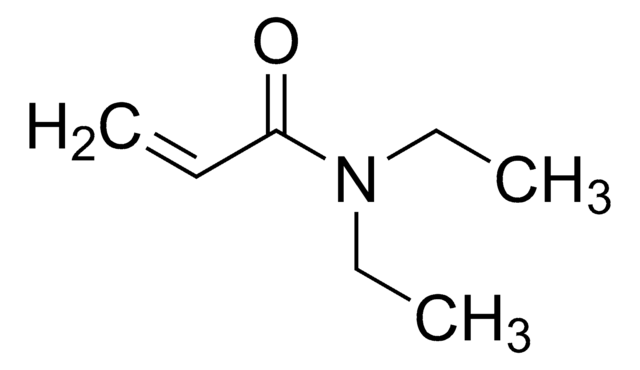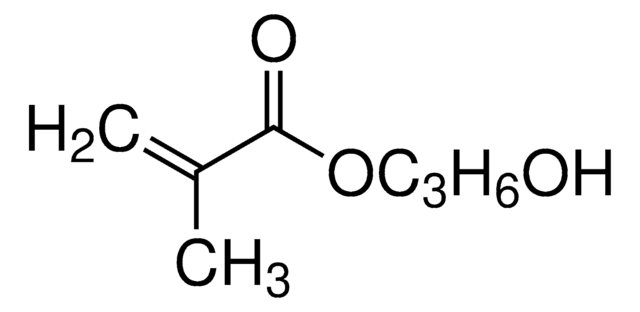245801
N-(Hydroxymethyl)acrylamide solution
48 wt. % in H2O
Synonym(s):
Monomethylolacrylamide, N-(Hydroxymethyl)acrylamide, N-Methanolacrylamide
About This Item
Recommended Products
form
liquid
Quality Level
contains
30 ppm monomethyl ether hydroquinone as inhibitor
concentration
48 wt. % in H2O
refractive index
n20/D 1.413
density
1.074 g/mL at 25 °C
SMILES string
OCNC(=O)C=C
InChI
1S/C4H7NO2/c1-2-4(7)5-3-6/h2,6H,1,3H2,(H,5,7)
InChI key
CNCOEDDPFOAUMB-UHFFFAOYSA-N
Looking for similar products? Visit Product Comparison Guide
Signal Word
Danger
Hazard Statements
Precautionary Statements
Hazard Classifications
Acute Tox. 3 Oral - Carc. 1B - Muta. 1B - Repr. 2 - Skin Sens. 1 - STOT RE 1 - STOT RE 2 Oral
Target Organs
Peripheral nervous system
Storage Class Code
6.1D - Non-combustible acute toxic Cat.3 / toxic hazardous materials or hazardous materials causing chronic effects
WGK
WGK 3
Flash Point(F)
Not applicable
Flash Point(C)
Not applicable
Personal Protective Equipment
Choose from one of the most recent versions:
Already Own This Product?
Find documentation for the products that you have recently purchased in the Document Library.
Customers Also Viewed
Articles
Professor Mitsuhiro Ebara provides insights on several types of smart nanofiber mesh systems that have been explored for different drug delivery purposes.
Our team of scientists has experience in all areas of research including Life Science, Material Science, Chemical Synthesis, Chromatography, Analytical and many others.
Contact Technical Service














